Bachelor of Science in Exercise Science: Sports Performance Emphasis
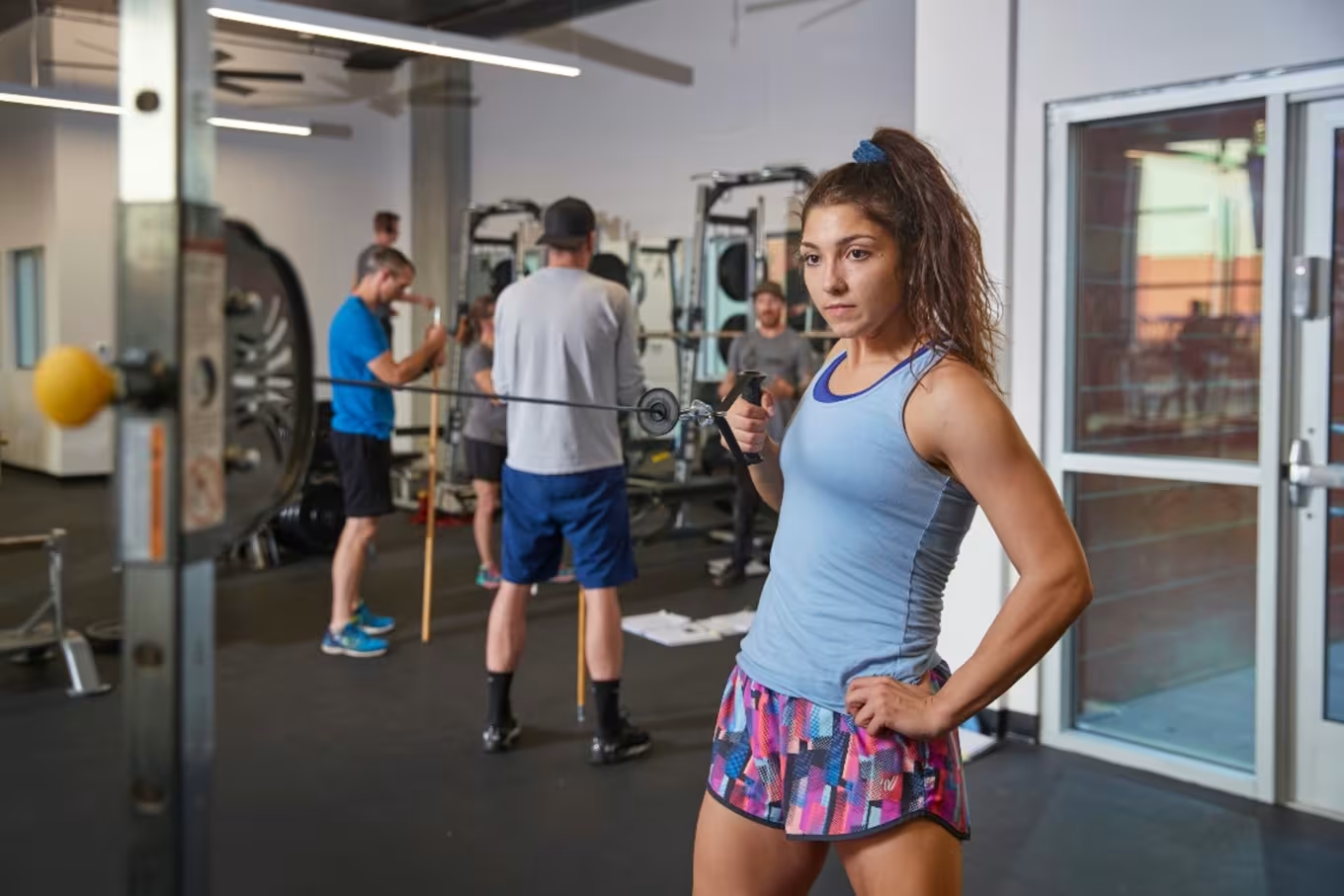
Bachelor of Science in Exercise Science: Sports Performance Emphasis
journey today.
This BS in Exercise Science at Grand Canyon University is designed to help prepare you for direct entry into the field of sports performance and strength and conditioning at various levels of athletics, including high school, college, club, professional sports and private practice, among others.
You can expect coursework that may prepare you to pursue graduate-level studies and qualify you to seek various nationally recognized professional certifications in the field.
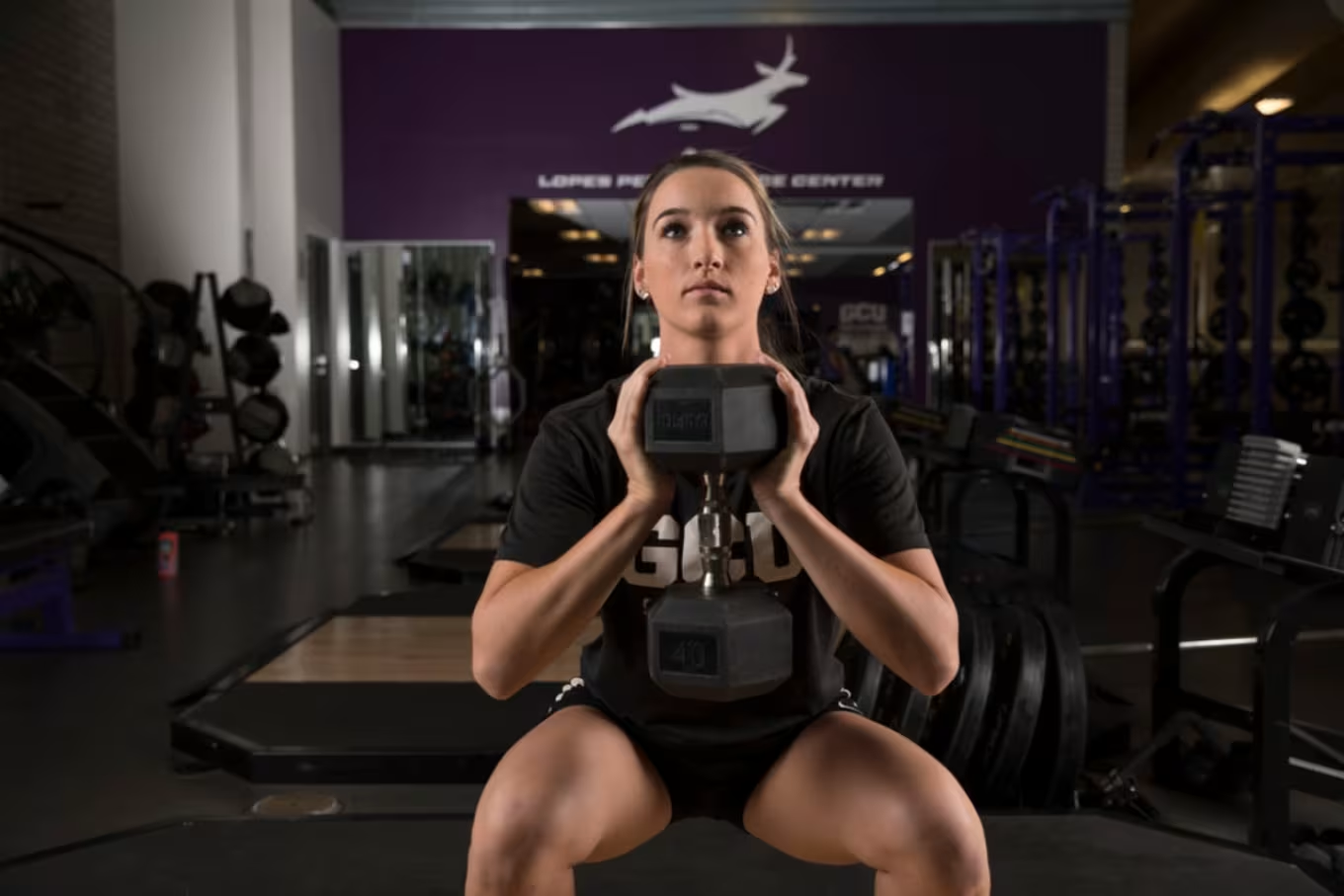
This bachelor’s degree includes flexible electives that can enable you to align your academic path with your career plans. This program delves into the scientific principles and processes pertaining to exercise science and athletic performance, which may position you to better support athletes as they strive to reach their full potential. In addition, the program offers comprehensive coursework in areas such as corrective exercises, resistance training and cardiovascular exercise.
Enjoy an active learning environment while you earn your bachelor’s in exercise science degree on GCU’s supportive, friendly campus. You will have opportunities to examine the many factors that contribute to overall health and wellness, as well as sports performance.
As you work through the exercise curriculum, you will be taught competencies in content areas that include:
Principles of sound nutrition and how food selection contributes to overall wellness
Foundational basics of sports performance
Effective exercise programming in resistance training and cardiovascular fitness
The design of health education and physical fitness programs through the lens of special populations
The analysis of human movement, its influences and proper biomechanics
Capstone Course
The sports performance courses include a capstone course, which is intended to give you an opportunity to demonstrate the competencies taught in this program. There is a focus on preparation for exercise science careers. This educational program is structured to provide you with the tools to prepare yourself for the rigors of exercise science professions, including a comprehensive foundation and preparation in exercise physiology, assessment techniques and the latest industry trends.
Gain Practical Experience With Sports Performance Research and Technology
At GCU, you will have opportunities to gain hands-on experience with a variety of populations. Through our research program and outreach activities, including research and design labs and clinics, exercise science students have had the opportunity to work with firefighters, law enforcement, the military and a variety of athletic teams on and off campus, including professional sports teams.
GCU has an exercise science teaching laboratory that may allow you the opportunity to experience what it is like to act as an athletic performance professional, conducting tests similar to those performed by professional sports coaches. You will be taught how to use high-tech laboratory equipment throughout the exercise science and sports performance courses.
10%
Estimated job growth for exercise physiologists as of May 20231
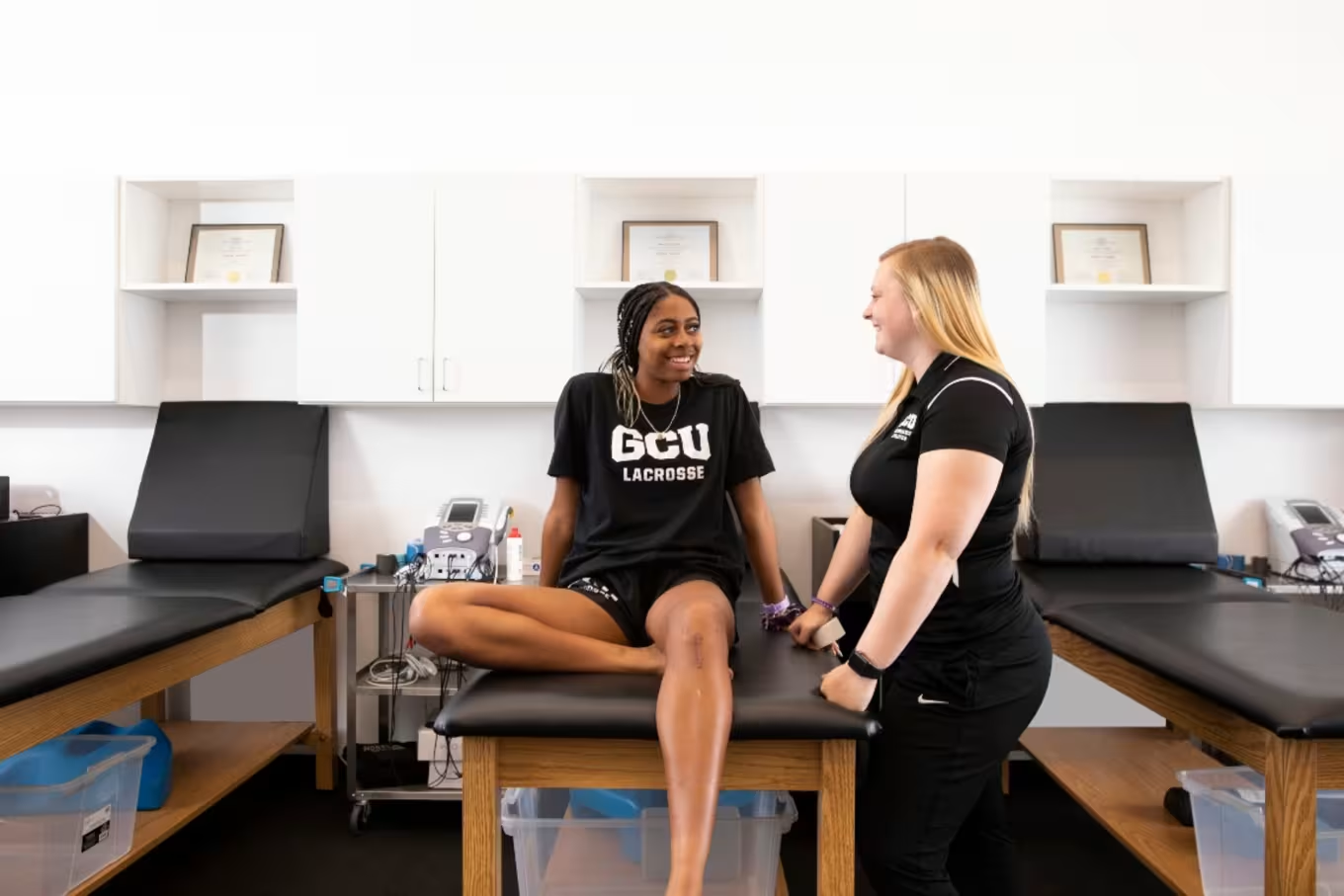
Sports and exercise science is a versatile field that may be applicable to a range of industries. With a foundation of competencies in this field, you might pursue a variety of potential career opportunities. Some may even choose to pursue a master’s or doctoral level education to further specialize in an area of sports performance or a related field. This may increase your chances of earning advanced certifications in the strength and conditioning industry, which may allow you to position yourself to potentially enhance career qualifications and opportunities.
Explore Your Career Potential
While the U.S. Bureau of Labor Statistics (BLS) may not offer specific details on careers in exercise science, related occupations such as exercise physiologists are among the fields relevant to this degree, focusing on assessing, improving and maintaining individuals' physical fitness and overall health.2
With this bachelor’s in exercise science sports performance emphasis, you may be positioned to pursue work as an exercise physiologist. Professionals in this role develop physical activity programs to help people improve components of their fitness, such as cardiovascular function, muscular strength or flexibility.2
It’s important to note that some careers within exercise science may require additional training, practicum experience or certification beyond a graduate degree.
$54,860
Average median annual wage for exercise physiologists as of May 20233
This BS in Exercise Science with a focus on sports performance is proudly approved by the Education Recognition Program (ERP) through the National Strength and Conditioning Association (NSCA). This recognition affirms that the program meets high standards in preparing you for careers in strength and conditioning, sports science and fitness. This designation also recognizes and distinguishes programs with approved and standardized strength and conditioning curricula. It highlights GCU’s ability to prepare students for the NSCA Certified Strength and Conditioning Specialist® (CSCS®) certification.
In addition, GCU holds accreditation from the Higher Learning Commission. GCU is pleased to offer institutionally accredited programs to continue in our long-standing tradition of prioritizing the quality of our curriculum and instruction.
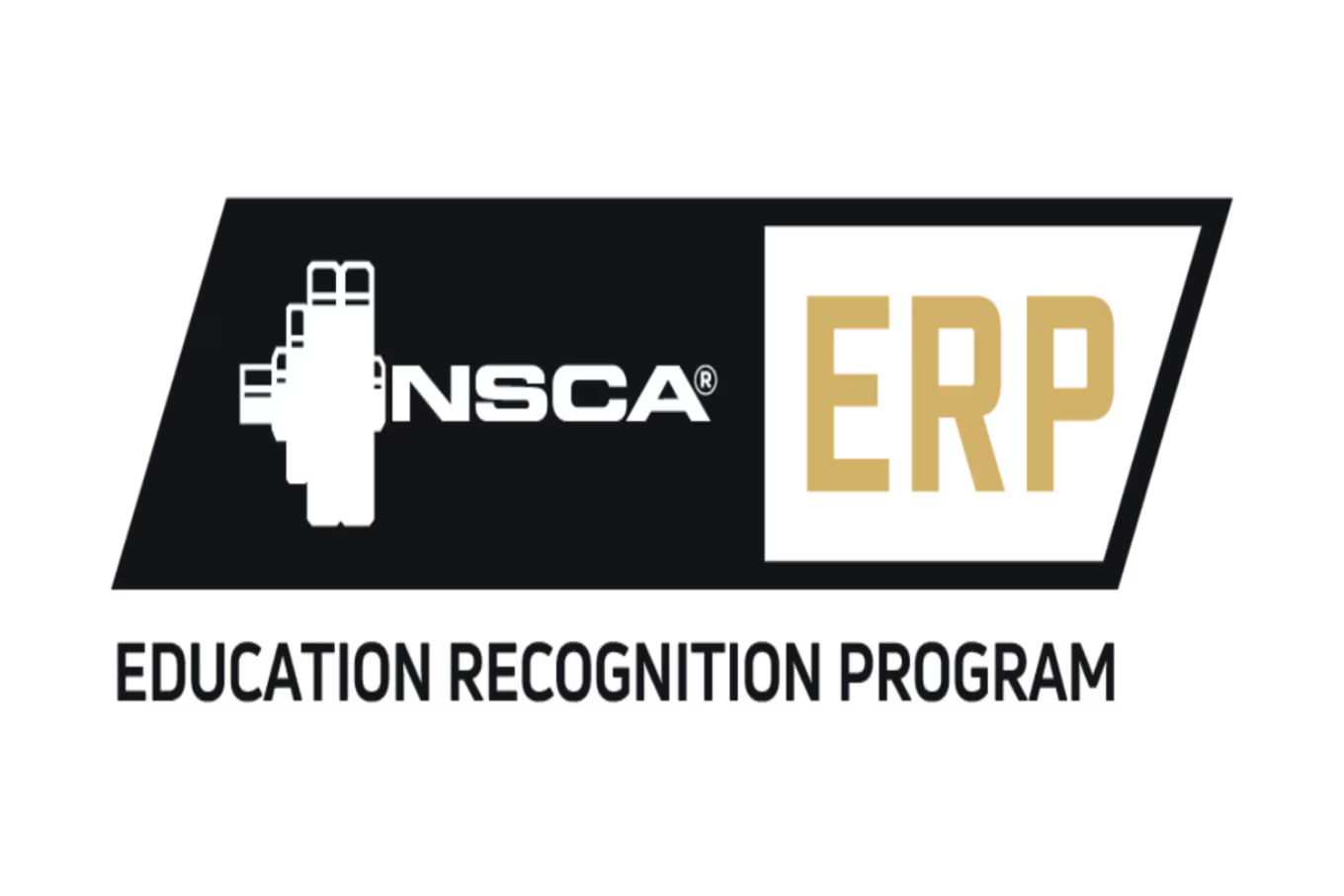
Bachelor’s in Exercise Science: Sports Performance FAQs
Your choices of a degree and career path are significant decisions for your future. Take some time to review the following frequently asked questions and answers, which may help you become more familiar with the exercise science field.
The science behind how the body works — the kinesiology — is complex. The majority of exercise science courses are science-intensive, with challenging content in areas such as human anatomy and human physiology. This BS in exercise science: sports performance emphasis may challenge you with practical sessions, lab work and theory that apply to sport and exercise. If you enjoy research-driven coursework and are eager to apply theories to practical situations, then a bachelor’s in exercise science may be a good choice for you.
A sports scientist is often used as a broader term that encompasses areas of sports medicine. They specialize in studying matters that pertain to sports and exercise science, ranging from injury prevention to the way in which the body responds to exercise.4 It’s a multidisciplinary field, and the career often requires a relevant master’s degree or doctorate, in addition to a bachelor’s in exercise science and relevant experience.4 A sports scientist may choose to earn professional certifications, such as the Certified Performance and Sport Scientist® credential from the National Strength and Conditioning Association.5 Aspiring sports scientists can benefit from strong problem-solving, research and communication skills.4
With the sports science field representing a wealth of career opportunities, earning additional certifications has the potential to help you become a more qualified job candidate. Certifications are earned specialty qualifications outside of earning your degree that may present an opportunity for candidates to demonstrate specialized knowledge in particular areas of interest. While this BS in Exercise Science: sports performance degree from GCU does not provide any specific certifications, this degree may set you up to be able to pursue certifications, such as:6
If you have the drive to further your health and wellness education and strengthen your career potential, a degree in exercise science may be worth it. Many students who graduate from GCU’s bachelor’s in exercise science degree may also choose to pursue higher education after completion of an undergraduate sports science degree. With exercise science and exercise physiology closely related fields within the realm of health and fitness, the BLS Occupational Outlook Handbook estimates job growth for exercise physiologists, to increase by about 10% from 2023 to 2033, much faster than average, accounting for an estimated increase of 2,200 jobs in the field.1
Exercise science majors within our BS degree with a sports performance emphasis may have the opportunity to pursue a career as an exercise physiologist. The BLS may not detail careers in exercise science, but related fields like exercise physiology are pertinent. According to the BLS, exercise physiologists had a median annual wage of $54,860 as of May 2023.3 Additionally, a degree with a sports performance focus may offer you a steppingstone to other professions.
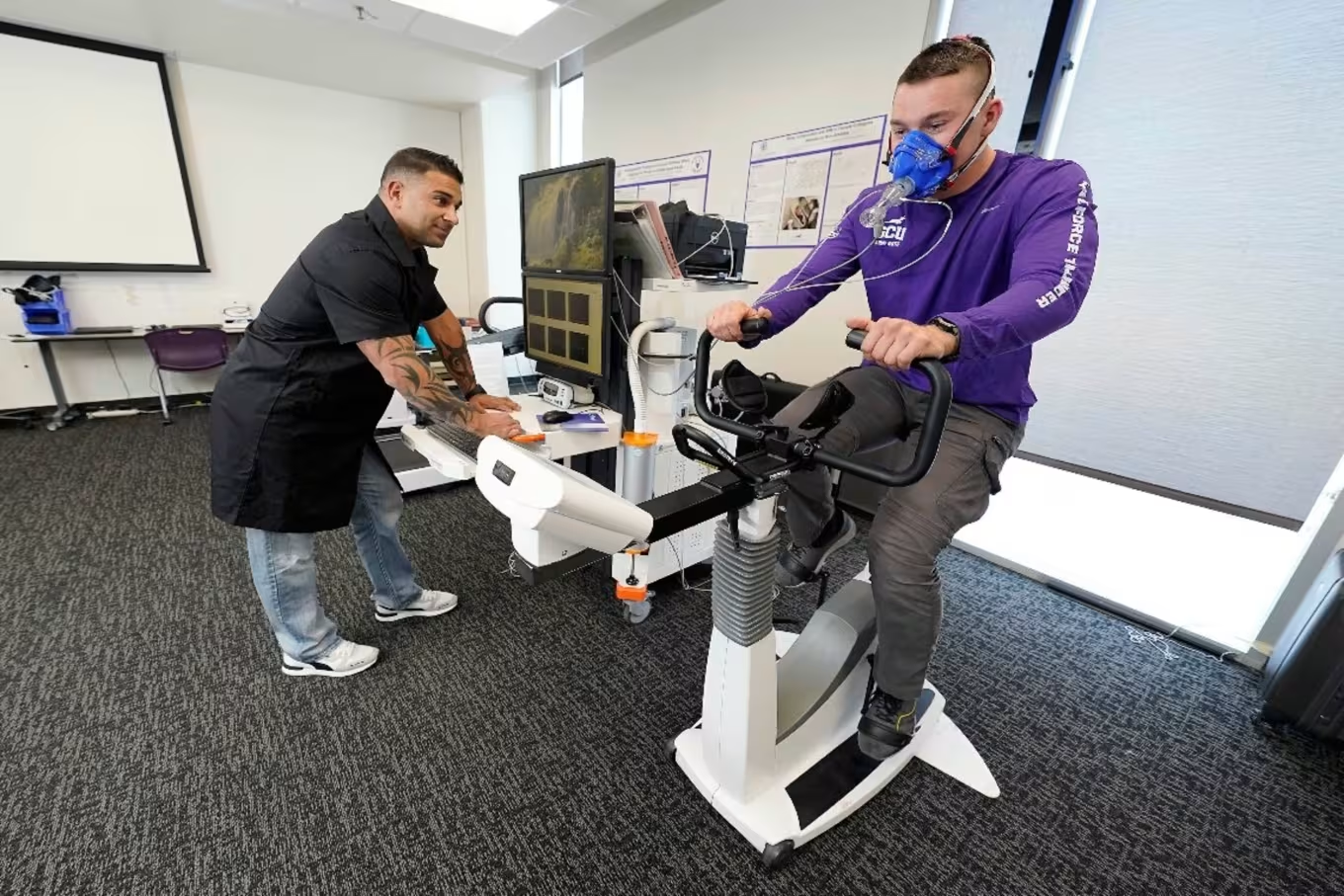
Start Your Journey Today
Are you eager to combine your passion for sports and fitness with purpose for your future career? Fill out the form on this page to learn more about GCU’s Bachelor of Science in Exercise Science with an Emphasis in Sports Performance degree.
1 COVID-19 has adversely affected the global economy and data from 2020 and 2023 may be atypical compared to prior years. Accordingly, data shown is effective September 2024, which can be found here: U.S. Bureau of Labor Statistics, Occupational Outlook Handbook, Exercise Physiologists, retrieved on Nov. 14, 2024.
2 U.S. Bureau of Labor Statistics (2024, Aug. 29). What Exercise Physiologists Do. Occupational Outlook Handbook. Retrieved on Nov. 14, 2024.
3 The earnings referenced were reported by the U.S. Bureau of Labor Statistics (BLS), Exercise Physiologists as of May 2023, retrieved on Nov. 14, 2024. Due to COVID-19, data from 2020 and 2023 may be atypical compared to prior years. BLS calculates the median using salaries of workers nationwide with varying levels of education and experience. It does not reflect the earnings of GCU graduates as exercise physiologists, nor does it reflect earnings of workers in one city or region of the country or a typical entry-level salary. Median income is the statistical midpoint for the range of salaries in a specific occupation. It represents what you would earn if you were paid more money than half the workers in an occupation, and less than half the workers in an occupation. It may give you a basis to estimate what you might earn at some point if you enter this career. Grand Canyon University can make no guarantees on individual graduates’ salaries. Your employability will be determined by numerous factors over which GCU has no control, such as the employer the graduate chooses to apply to, the graduate’s experience level, individual characteristics, skills, etc., against a pool of candidates.
4 Indeed (2024, June 25). How To Become a Sports Scientist (definition and skills). Retrieved Nov. 14, 2024.
5 National Strength and Conditioning Association (n.d.). Become a Certified Performance and Sport Scientist (CPSS). Retrieved Nov. 14, 2024.
6 Sports Management Degree Guide (n.d.). Top 5 Sports Certifications. Retrieved Nov. 14, 2024.
